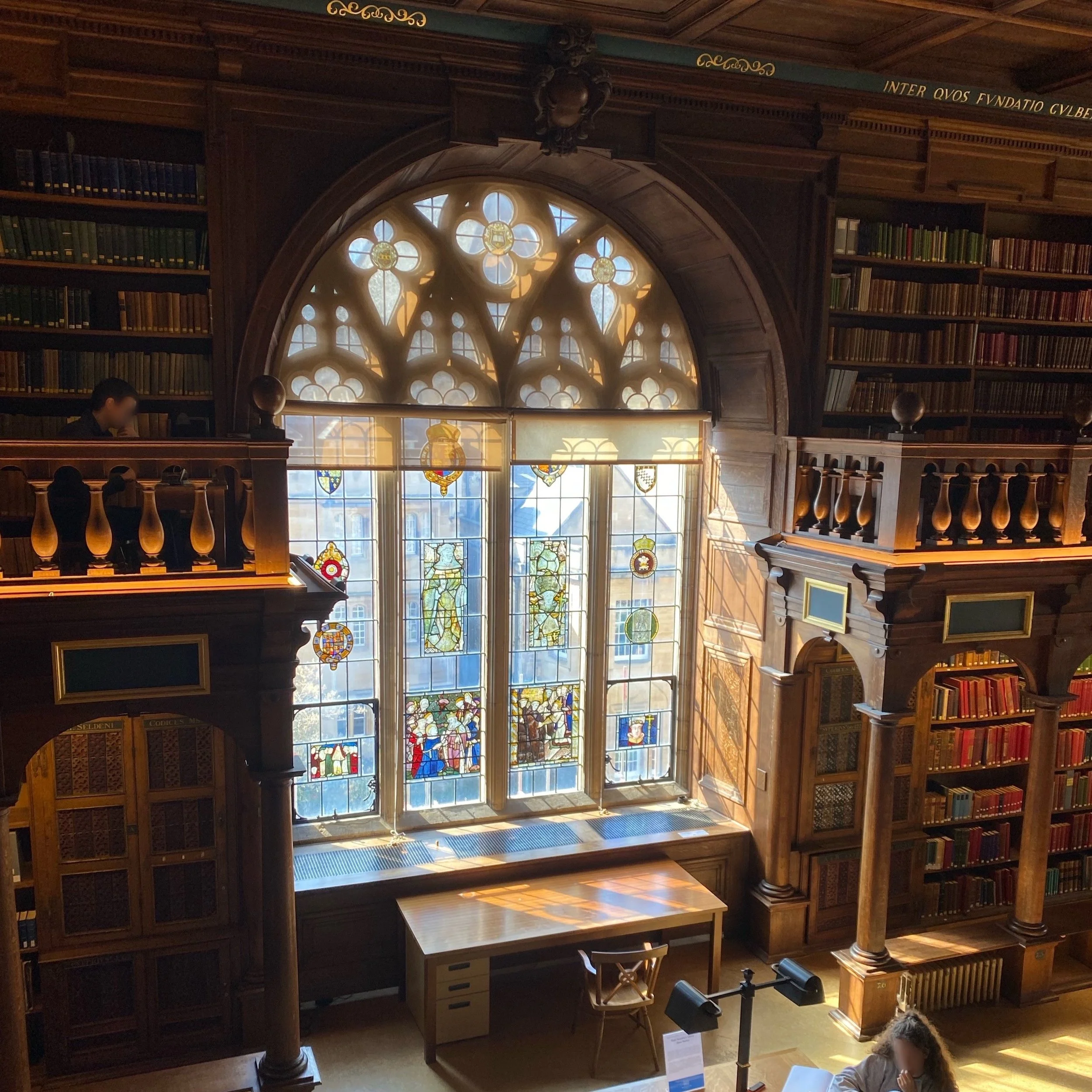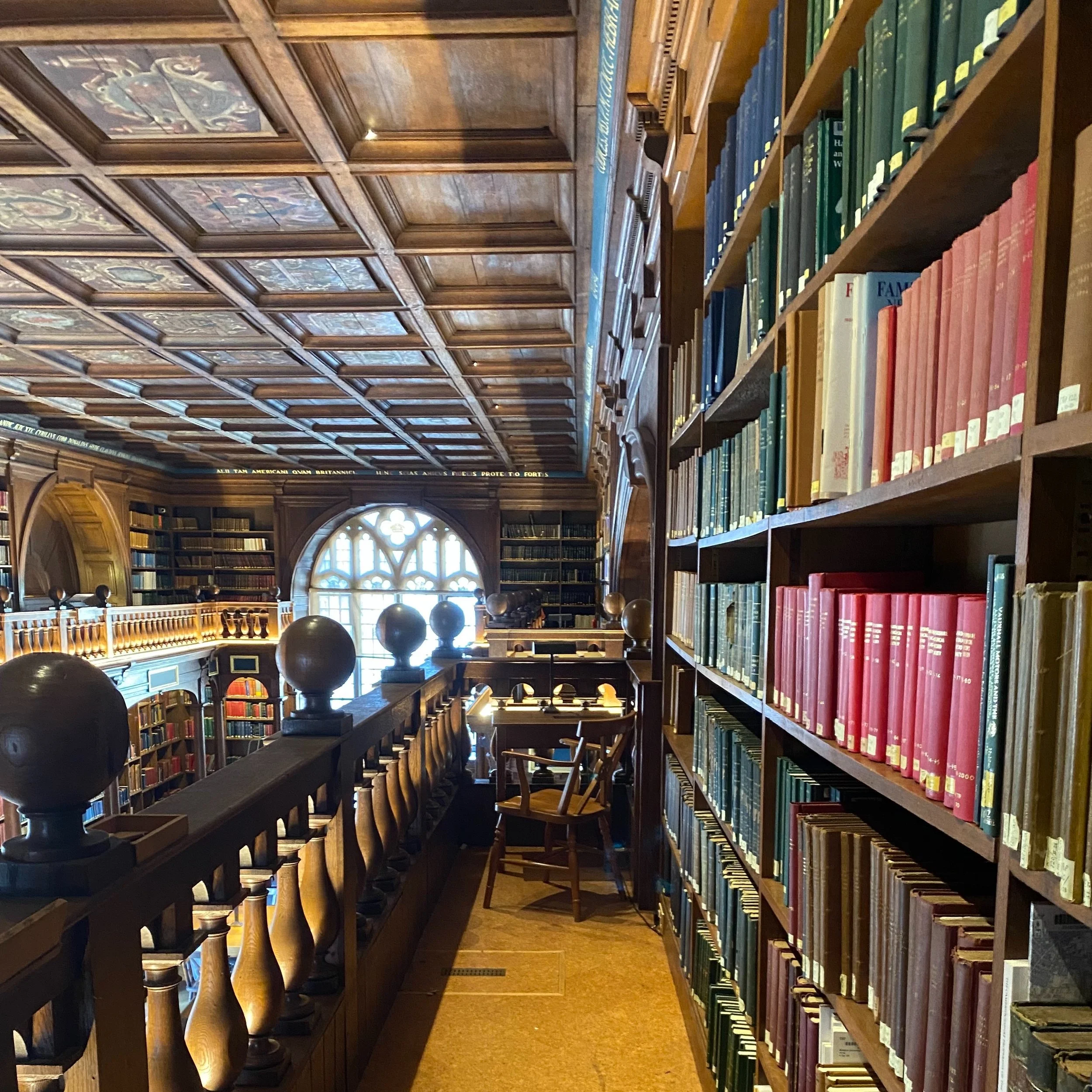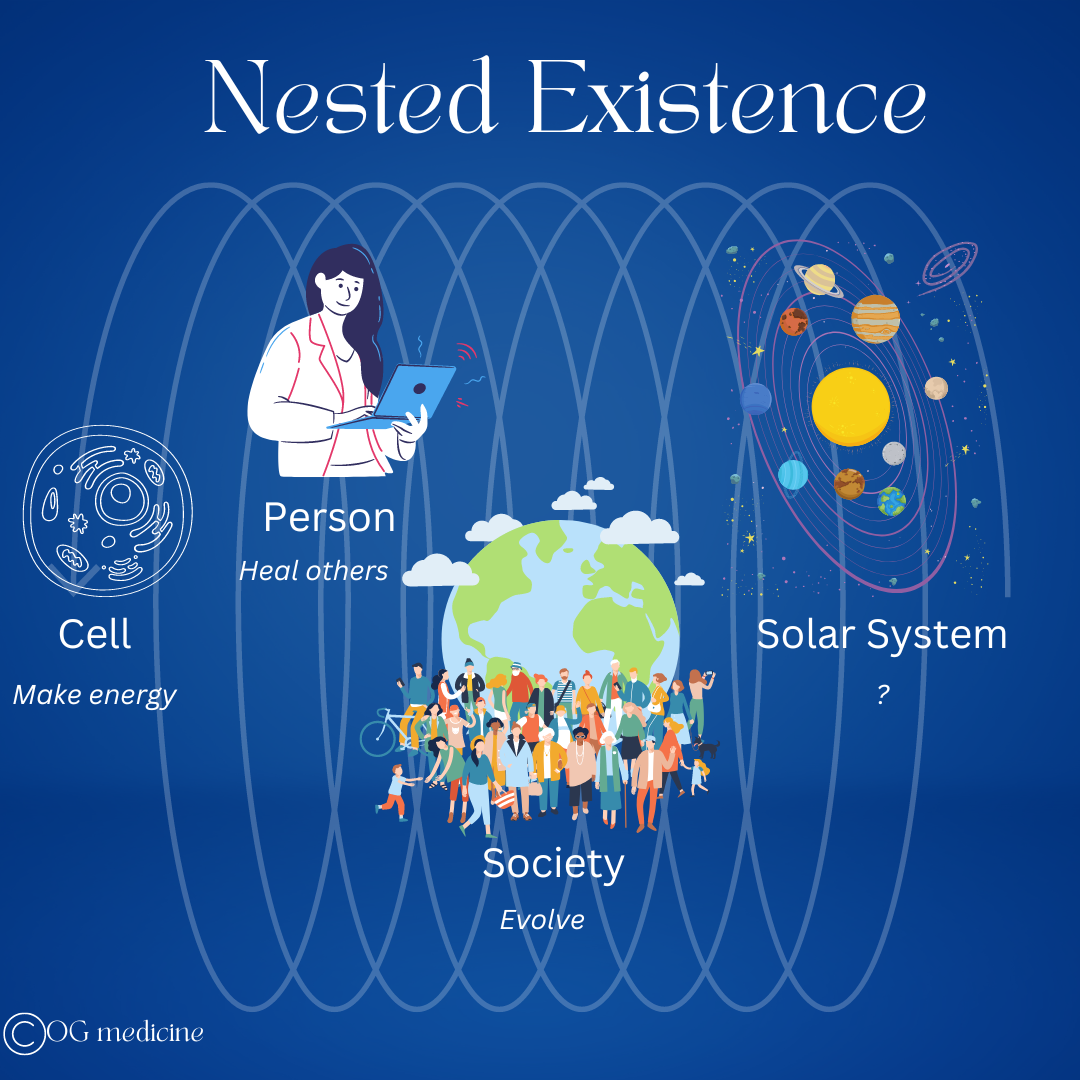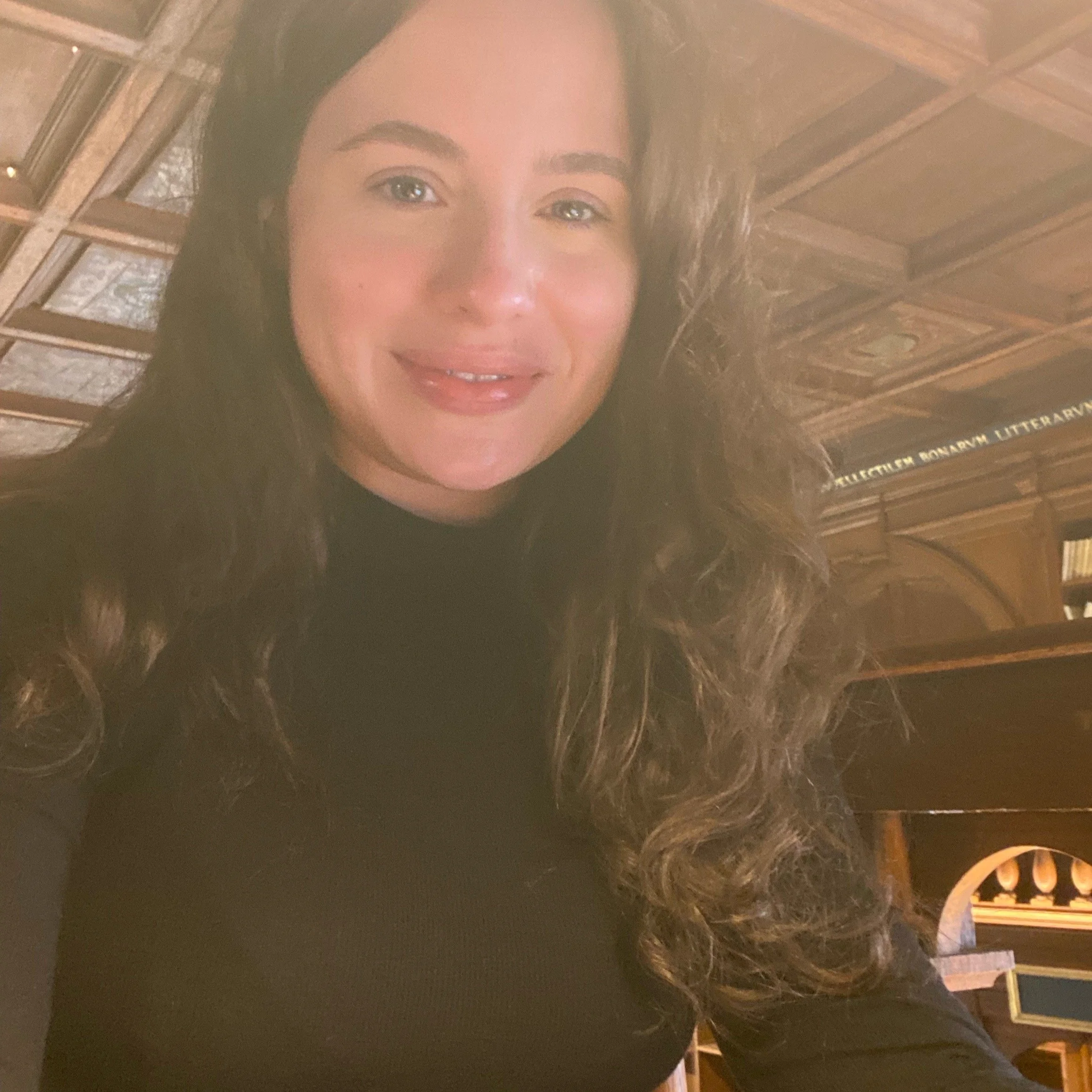The meaning of life
Subtitle: We are all (part of) a repeating pattern
By Olivia Geen, MD, MSc, FRCPC
| 5 min read |
I’m currently sitting in the Bodleian Library at the University of Oxford (the cool old one that’s featured in Harry Potter).
I’m surrounded by the wisdom of the ages. There are books on these shelves that are hundreds and hundreds of years old.
And yet I sit here - with my AirPods in, listening to music on Spotify, typing on my laptop, connected wirelessly to the internet, through which I can access the near-total repository of human knowledge - a stark reminder of how things change over time in ways that those that came before could never imagine.
Duke Humfrey’s Library, April 3 2023.
With each generation, the possibilities expand as the world creates new things that spread and are sustained into fundamental changes. We are in the technological age because of the work of those that have come before. As I sit here writing my dissertation (cough cough, blog), I am both a part of history past and history to come. I am a moment in the stream that keeps on flowing by.
We are nested within the bigger story, and connected to those before and after, like a set of Russian dolls; a repeating pattern through the ages.
What does this mean then, if we are part of a history; the story that keeps unfolding around us? What does it mean to be part of something that transcends your own time?
I’ve long realized that the greatest thing I ever do will be forgotten; there are rare names from 100 years ago that we all know, let alone 1000 years.
Thus, what I do today, has nothing to do with me, because I will cease to exist, and my name will be lost to the ages. And yet, what I do is not meaningless, when it becomes the ground on which someone else eventually stands.
The mission and meaning of our lives is therefore individual to the time within which we exist, but part of the grand eternal picture outside of time.
Let me explain.
“History: the whole series of past events connected with a particular person or thing.”
The upper balcony in Duke Humfrey’s, accessible though a little winding staircase that’s hidden within the bookshelves on the lower levels. Each of those books was written by someone who’s now gone.
Knowledge Through Metaphor
Let’s use the metaphor of the human body to explain what I mean (an easy pattern for us healthcare workers to see).
A human cell has activities it does every day - a “mission” - which differs depending on what type of cell it is (a blood cell, a brain cell, a muscle cell, etc). Its mission in that moment contributes to the bigger goal of which it is not aware; the bigger goal of me, the person, within which it sits. The cell dies and the bigger system keeps on going. I surpass the time of the cell, but the cell was part of the story that continues to unfold ahead of it, outside of time.
Spiralling down, the cell itself has a mini system within it - proteins that each have a “mission” - depending on what they are (a neurochemical, a hormone, an enzyme, etc). These proteins are integral to the cell, and as one protein is used up another one comes along, to allow the cell to keep going.
Spiralling up, a human has individual activities - a “mission” - which differs depending on what type of person they are (a doctor, a lawyer, a contractor, a teacher, an accountant, a bus driver, a receptionist, a parent, a politician, a researcher etc). When I die, the work that I have done will be a stepping stone for those that come after me; society keeps going outside of time.
Everything works toward something during a lifetime. The cell contributes to the bigger system (human) that has another mission outside the cell’s individual lifetime. Every system exists in another system, meaning everything is ultimately part of the same thing.
We are all of us, everything, anything, entirely nested within each other. And the thing within which we are nested is potentially beyond our grasp, depending on our abilities to comprehend it.
A cell cannot comprehend the body (as far as we know), and although we can comprehend that we are part of a family, a nation, a global society, a planet, a solar system, a universe …. what comes after that?
Selfie of a collection of proteins and cells, sitting inside Duke Humfrey’s Library, Oxford, UK, planet Earth, the Universe.
Freedom
It doesn’t really matter if the bigger picture of the “meaning” of my life is beyond me. I don’t mind if we are unaware of the totality of the complex system within which we sit and never truly grasp how our individual contributions are essential and part of the grander “mission” of the thing within which we are nested.
Knowing that we are part of something bigger than ourselves is enough.
Just because my red blood cells don’t know that the goal they are helping with today is to write the article, it does not mean that they aren’t necessary for that mission. Everything within which we are nested is a part of us, and we a part of it.
A protein is a cell-is a human-is a society-is a planet-is a solar system-is a universe-is… conceivably something beyond that too.
I am a complex system, just as I sit within a complex system.
In the end, the meaning of my life is realized by doing the work that I am meant to do (like the Japanese Ikigai). Even if I don’t know how it helps, what it does, or what it will become… the system bigger than me, outside of time, transcends my existence and carries my existence with it, into the future.
By doing the thing you are meant to do, you take your place in the story.
Hope this unsettled and inspired you in equal amounts.
xoxo
Olivia
Dr. Geen is an internist and geriatrician in Canada, working in a tertiary hospital serving over one million people. She also holds a masters in Translational Health Sciences from the University of Oxford, is widely published in over 10 academic journals, and advises digital healthcare startups on problem-solution fit and implementation. For more info, see About.
Influences:
1) The human body.
2) Photons, light, sunshine, the sun.
3) Simone de Beauvoir, Pyrrhus and Cineas, 1944.




